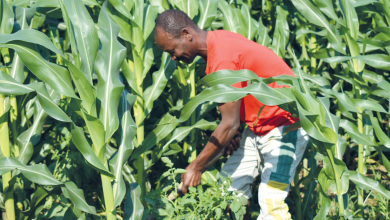Malawi’s Jobs Challenge—From Crisis to Opportunity
It is a sad fact that many households in Malawi presently have a young person who is unemployed but has completed tertiary or skills education training. Every day, he or she sends job applications with a hope of getting a decent job. The invitation to an interview or job offer for these young people often remains a distant dream. This is the reality for Malawi and many other countries at present.
With Malawi’s population growing at over 2.5 percent annually and more than 270,000 young people entering the labour market each year, the Government faces an urgent challenge: how c create enough jobs to meet the aspirations of its burgeoning youth population. Despite the resilience and entrepreneurial spirit of Malawians, the reality is stark—most struggle to find stable, well-paying work, and the path to prosperity remains elusive.
At the World Bank Group, we have enough evidence that jobs are the surest way out of poverty and the essential ladder to achieve individual aspirations. At this year’s World Bank Group and International Monetary Fund Annual Meetings, the jobs agenda is the primary theme of all discussions, and it will continue to be, because over the next decade, 1.2 billion young people in developing countries, including Malawi, will become working age.
How is the employment situation in Malawi?
Agriculture remains the backbone of Malawi’s economy, employing nearly three-quarters of the workforce. Yet, most of these jobs are informal, seasonal, and of offer very meagre wages, leaving families in poverty, and vulnerable to climate shocks and market fluctuations.
Formal wage employment is rare—only about one in ten Malawians over age 15 has a salary-paying job, and even those with tertiary education often struggle to secure formal positions.
The services sector, including tourism, has grown in importance, but most new jobs are in low-productivity activities such as retail trading and informal services. Industrial jobs, which could drive structural transformation, have declined, hampered by limited investment and a challenging business environment.
Barriers to Job Creation
Several factors combine to make job creation in Malawi a formidable challenge:
- Rapid Population Growth and Land Pressure: Malawi’s population is set to double within a generation, intensifying competition for land and resources. Smallholder agriculture cannot absorb the growing labor force, and shrinking landholdings mean many rural families cannot meet their basic needs through farming alone.
- Low Skills and Education: While educational attainment has improved, the quality remains low. Many young people leave school without basic numeracy and literacy skills, and there is a mismatch between the qualifications of job seekers and the needs of employers. Vocational and technical training programs are thinly spread and often lack market relevance. When people don’t have enough education or skills, it becomes harder for them to find good jobs or start successful businesses
- A Challenging Business Environment: Malawi’s private sector is dominated by micro and small enterprises, most operating informally. Access to finance, reliable electricity, and markets are major obstacles. Corruption, regulatory uncertainty, and poor infrastructure further stifle business growth and job creation. Many of these MSMEs therefore do not grow and are not able to provide more and better job opportunities.
- Gender and Social Barriers: Women and youth face particular disadvantages. Women are more likely to be employed informally, earn less, and have limited access to productive resources. Youth unemployment is high, especially in urban areas, and many young people are neither employed nor in education.
What Can Be Done?
Addressing Malawi’s jobs challenge requires a multi-pronged approach, combining immediate interventions with long-term reforms:
Strengthening Skills and Education
- Invest in quality education, especially at primary and secondary levels, to ensure young people acquire excellent foundational skills.
- Expand and reform vocational and technical training to align with market needs, including digital skills and entrepreneurship.
- Tackle gender disparities in education, supporting girls to complete school and access training.
Support Private Sector Growth
- Improve access to finance for micro, small, and medium enterprises (MSMEs), including innovative credit products and digital financial services.
- Simplify business registration and licensing to encourage formalization and growth.
- Invest in infrastructure—reliable electricity, transport, and digital connectivity—to lower costs and open new markets.
Promote Agricultural Commercialization and Diversification
- Support smallholders to shift from subsistence to commercial farming, including access to inputs, markets, and extension services.
- Transforming and commercializing agriculture, with a focus on higher-value value chains, and agro-processing to create jobs beyond the farm gate.
- Develop climate-resilient farming practices and social protection programs to buffer shocks.
Foster Inclusive Job Creation
- Target interventions to women and youth, including apprenticeships, mentorship, and support for female entrepreneurs.
- Address barriers to employment in sectors such as construction, mining, and transport, ensuring equal opportunities and safe working conditions.
Build an Enabling Environment
- Pursue macroeconomic stability to lay a foundation for sustainable growth and good governance to attract investment and foster confidence.
- Strengthening institutions and policy frameworks to support job creation, labor rights, and social protection.
- Formulate deliberate policies to support MSMEs growth through business opportunities, access to internet, infrastructure and access to finance.
In conclusion, Malawi’s jobs challenge is daunting, but not insurmountable. The country’s youthful population, entrepreneurial spirit, and wealth of natural resources—including emerging opportunities in mining and energy—offer hope for a brighter future. Countries can fall behind if they don’t access technology, close gaps in skills and prepare workers for jobs of the future. By investing in people, supporting businesses, and building resilience, Malawi can turn crisis into opportunity and ensure that every Malawian has an opportunity to thrive.



